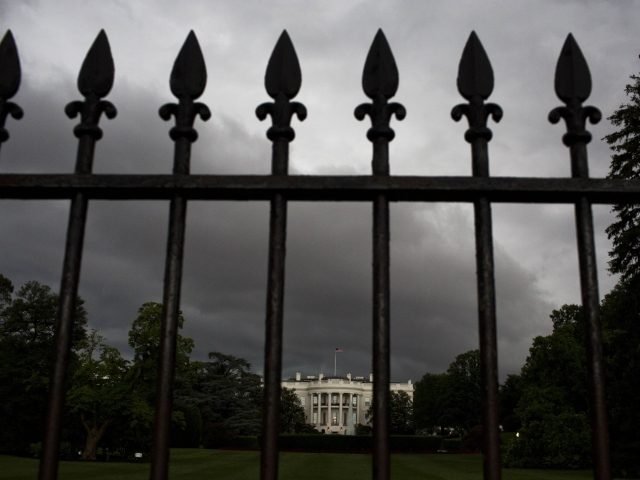The White House released its “trial memorandum” in response to impeachment on Monday, and it is a tour de force that lays out clearly why the case against President Donald Trump is not only wrong on the facts, but constitutionally invalid.
The memo makes the familiar point that the only people who spoke directly to the president have said there was no “quid pro quo.” That includes not only Ambassador Gordon Sondland, but also Sen. Ron Johnson (R-WI), as well as Ukrainian President Volodymyr Zelensky. All of the other sources, including the so-called “whistleblower,” offered only hearsay that would be inadmissible in any court. There is literally no valid evidence against the president.
But while such arguments are familiar to those who have watched the case closely, some of the arguments are being made clearly and publicly for the first time.
Here are the nine most important new arguments in the memo:
1. It was entirely appropriate for President Trump to ask Ukraine about the Bidens and Burisma. This is an argument that a few House Republicans, and conservative critics, made during the impeachment inquiry. However, we had not seen it so clearly stated until now. Democrats say there was no public interest in Trump’s request, which they claim was purely for personal and political benefit. The memo demonstrates that the inquiry was legitimate.
2. President Trump had a broad interest in stopping corruption in Ukraine, not confined to the Bidens. Again and again, Democrats have claimed the president had no real interest in corruption. But as Breitbart News pointed out, Catherine Croft — one of the witnesses Democrats left in the “basement” — testified Trump had raised the issue previously, even lecturing the former Ukrainian president in front of his staff. The White House cites her testimony.
3. Democrats are trying to impeach the president for having the wrong state of mind when he acted legally. As Breitbart News pointed out, the House Judiciary Committee memo on impeachment argued that a president can be impeached for “illegitimate motives” even if his actions are “legally permissible.” This is an absurd argument. The White House also calls Democrats out for citing the failed impeachment of Andrew Johnson to support their claim.
4. The White House has withheld aid to other countries in the same way and without any controversy. This point arose briefly in the impeachment inquiry, when witnesses acknowledged that aid had been withheld from Lebanon, among others, without further explanation to other agencies. The White House memorandum provides an extensive list of similar cases, noting that what happened in the Ukraine case was neither unusual nor unlawful.
5. The House impeachment inquiry resolution failed to authorize hearings that had already happened. The resolution of October 31 “directed” House committees “to continue their ongoing investigations” into the president. However, the White House notes (emphasis added), “the Resolution did not purport to retroactively authorize investigative efforts before October 31.” Subpoenas that were invalid before October 31 therefore remained invalid.
6. The articles of impeachment are invalid because they use a laundry list rather than a clear case. The brief notes that the Constitution requires the Senate to vote on a specific basis for removing the president, but the articles each list a “menu” or “smorgasbord” of possible reasons to do so, none of which might pass on its own. The Senate therefore cannot vote on the articles, nor is the Senate allowed to edit the articles to vote on each theory separately.
7. The subpoenas to administration officials were invalid because they denied counsel to the executive. The House accuses the president of obstruction for denying witnesses to the impeachment inquiry, but he had to do so because Intelligence Committee Chairman Rep. Adam Schiff (D-CA) denied counsel to the executive branch in the hearings. The witnesses could not obey subpoenas that effectively destroyed the constitution’s separation of powers.
8. The president’s due process rights apply in impeachment, not just at trial. Democrats tried to excuse the fact that they denied the president legal representation at the right to call witnessesin the fact-finding portion of their inquiry by likening impeachment to a grand jury investigation. The White House memo cites two centuries of precedent to point out that due process rights have long been established in House impeachment investigations.
9. Adam Schiff is “an interested fact witness who lied about contact with the whistleblower.” The White House memo calls out Schiff specifically, and repeatedly, for lying to the public about his committee’s prior contact with the whistleblower. He is a “fact witness” who should have been testifying about how the complaint came about. Instead, he was presiding over the inquiry and shutting down legitimate questions about how the president had been accused.
The memorandum concludes that Democrats are using impeachment to interfere in the 2020 election. “Put simply, Democrats have no response to the President’s record of achievement … They have no policies and no ideas to compete against that. Instead, they are held hostage by a radical left wing that has foisted on the party a radical agenda of socialism at home and appeasement abroad that Democrat leaders know the American people will never accept.”
The memorandum is so well-argued that some observers believe it could change the way the Senate trial proceeds — perhaps by increasing Republican support for dismissing the impeachment outright without calling further witnesses.
Joel B. Pollak is Senior Editor-at-Large at Breitbart News. He earned an A.B. in Social Studies and Environmental Science and Public Policy from Harvard College, and a J.D. from Harvard Law School. He is a winner of the 2018 Robert Novak Journalism Alumni Fellowship. He is also the co-author of How Trump Won: The Inside Story of a Revolution, which is available from Regnery. Follow him on Twitter at @joelpollak.

COMMENTS
Please let us know if you're having issues with commenting.